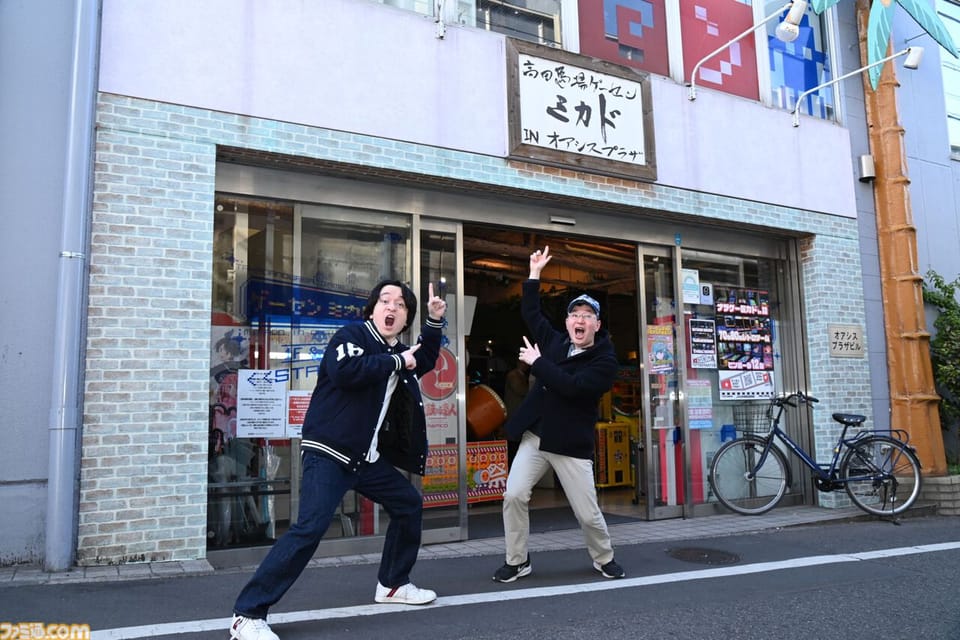Hearing About the Latest Arcade Trends at the Legendary "Game Center Mikado" – Playing Snow Bros. 2 Reminded Me Why Arcades Are So Great

Note: This article was originally posted on Famitsu and has been translated here to English
オールドアーケードゲームの聖地“高田馬場 ミカド”で最近のゲーセン事情を聞く。https://t.co/vGTxfTj7gp
— ファミ通.com (@famitsu) February 25, 2025
ずらりと並んだビデオゲーム筐体。一度触ればルールがわかる。協力プレイでボス撃破!『スノーブラザーズ2』を遊んだら「ゲーセンっていいなあ」と思った記録#スノーブラザーズ2 #PR pic.twitter.com/9dBUHhyPDv
There was a time when game centers were the go-to place for playing the latest video games. However, as home consoles evolved, the latest gaming experiences gradually became something you could enjoy from the comfort of your own home.
In recent years, it has become increasingly common for classic arcade games to be ported to modern home consoles. A prime example is Hamster Corporation’s Arcade Archives series, which continues to release a wide variety of arcade games at affordable prices. Similarly, Capcom has compiled several of its fighting games into collections, such as the Capcom Fighting Collection, enabling online battles.
One such revival is Snow Bros. 2 Special, a remake of Snow Bros. 2, originally released in arcades in 1994. The remake, developed by Gravity Game Arise, is scheduled for release on April 10, 2025, for Nintendo Switch and PC (Steam).
But hold on a second—while Snow Bros. is fairly well-known, how many people have actually played Snow Bros. 2? Even among retro game fans, the number is likely quite small. That’s because, although it was officially released, it had very limited distribution in arcades due to various circumstances.
Before introducing Snow Bros. 2 Special, I wanted to play the original arcade version. With that in mind, my editor and I headed to a place well-known for housing legendary arcade games.
Off to Mikado!
This article may have started off a little formal, but let’s be honest—we just wanted to play games! The only place where Snow Bros. 2 is still running in an arcade setting is Game Center Mikado, a famous arcade in Takadanobaba that specializes in retro arcade games.
Mikado is one of the few remaining arcades where video games take center stage. It mainly features fighting and shooting games, delighting longtime arcade fans. The arcade is also known for running rare and obscure titles, and yes, Snow Bros. 2 is one of them.
Before our interview, one of my editors, Dedeo, arrived early and ended up playing a completely unrelated game (laughs). I, too, secretly played a random fighting game before leaving. Many of the arcade titles available at Mikado have been ported to home consoles, but there’s just something special about playing them on their original arcade machines. It’s hard to put into words, but that experience is something you can’t quite replicate at home.
That said, I also appreciate that many classic games are being ported to home consoles. Making these games more accessible to a wider audience is always a good thing for fans, and the convenience of playing at home is undeniable. But at the same time, I was reminded that there are unique charms to playing in an actual game center that can’t be replaced.
Interview with Mikado’s Manager
Since we were at Mikado, we took the opportunity to interview the arcade’s manager, Minoru Ikeda, about the current state of arcade gaming and the impact of classic games being ported to home consoles.
— Recently, more and more arcade games are becoming available on home consoles. As an arcade that focuses on video games, how does this affect Mikado?
Ikeda: One positive effect is that players who discover a game through its home console version sometimes look up Mikado and visit us to play it on the original arcade hardware.
There’s a unique charm to playing on an actual arcade cabinet. For instance, we use CRT monitors, which provide a level of visual impact and responsiveness that modern screens can’t quite match. There’s also a certain flavor to playing on a real arcade machine—the slightly blurry CRT display, the worn-out speakers producing slightly degraded sound. That’s what I consider the authentic experience (laughs).
We believe this kind of unique charm is something that can’t be replicated on home consoles. That said, we do appreciate the fact that classic games are getting home releases, as it allows more people to discover and enjoy them.
— Video game-focused arcades have become incredibly rare, haven’t they?
Ikeda:
A while back, someone asked me, “How many game centers in Japan still focus primarily on video games?” So I did the math.
There are about 2,500 game centers across Japan. Out of those, only about 30 arcades primarily focus on video games. That means video game arcades make up just 1.2% of the total (laughs). Sometimes, I wonder how we’re even still in business!
— That’s an unbelievably low number… But after spending time here, I was reminded of the unique atmosphere that arcades offer. The dimly lit environment, the sounds of arcade machines—it’s something special that only game centers can provide.
Ikeda: Yeah, and I’d like to point out that while the atmosphere remains intact, arcades are much cleaner than they used to be (laughs).
There used to be a perception that arcades were hangouts for delinquents and had a bad reputation, but that’s not the case anymore. In the past, smoking was allowed inside game centers, but Mikado is now completely non-smoking. The air is literally cleaner now.
— I remember some arcade cabinets had cigarette burns on them (laughs).
Ikeda: Oh yeah, that was common (laughs). Some older games were insanely difficult, and people would get so frustrated after instantly dying that they’d stub out their cigarettes on the machine in anger. But since smoking is no longer allowed, we no longer have to deal with those kinds of repairs. Overall, the environment has improved a lot.
The Impact of COVID-19 on Arcades
— I heard that Mikado, like many arcades, suffered financially during the COVID-19 pandemic but managed to recover through merchandise sales, streaming, and promotions. How are things now?
Ikeda: If we consider our peak sales before the pandemic as 100%, we still haven’t fully returned to that level. However, our revenue has been steadily increasing year by year, and we’re gradually approaching pre-pandemic numbers.
The good news is that weekends are as busy as ever. In fact, they’ve bounced back to the levels we saw at our peak. However, weekdays have taken a big hit. It seems that people’s lifestyles have changed—rather than stopping by an arcade after work, many now go straight home.
I suspect that during the pandemic, people realized, “Wait, I can enjoy entertainment from home.” This shift in behavior has made weekday evenings particularly difficult for us.
Mikado is located next to Takadanobaba Station, which is on the Yamanote Line. One challenge we’ve faced is that, due to the pandemic, the last train on the Yamanote Line now departs earlier than before. Previously, customers could play until around 11:30 PM, but now they have to leave by 10:30 PM.
— So you lost an hour of business each night due to train schedule changes.
Ikeda: Exactly. Before the pandemic, some players would stay right up until closing time. There were even times when someone would start playing Gradius III right before closing, and we’d be like, “Hey, that game takes at least an hour to finish!” (laughs).
But now, people tend to leave earlier at night. One of our biggest challenges moving forward is figuring out how to fill those late-night gaps and make up for the lost revenue.
